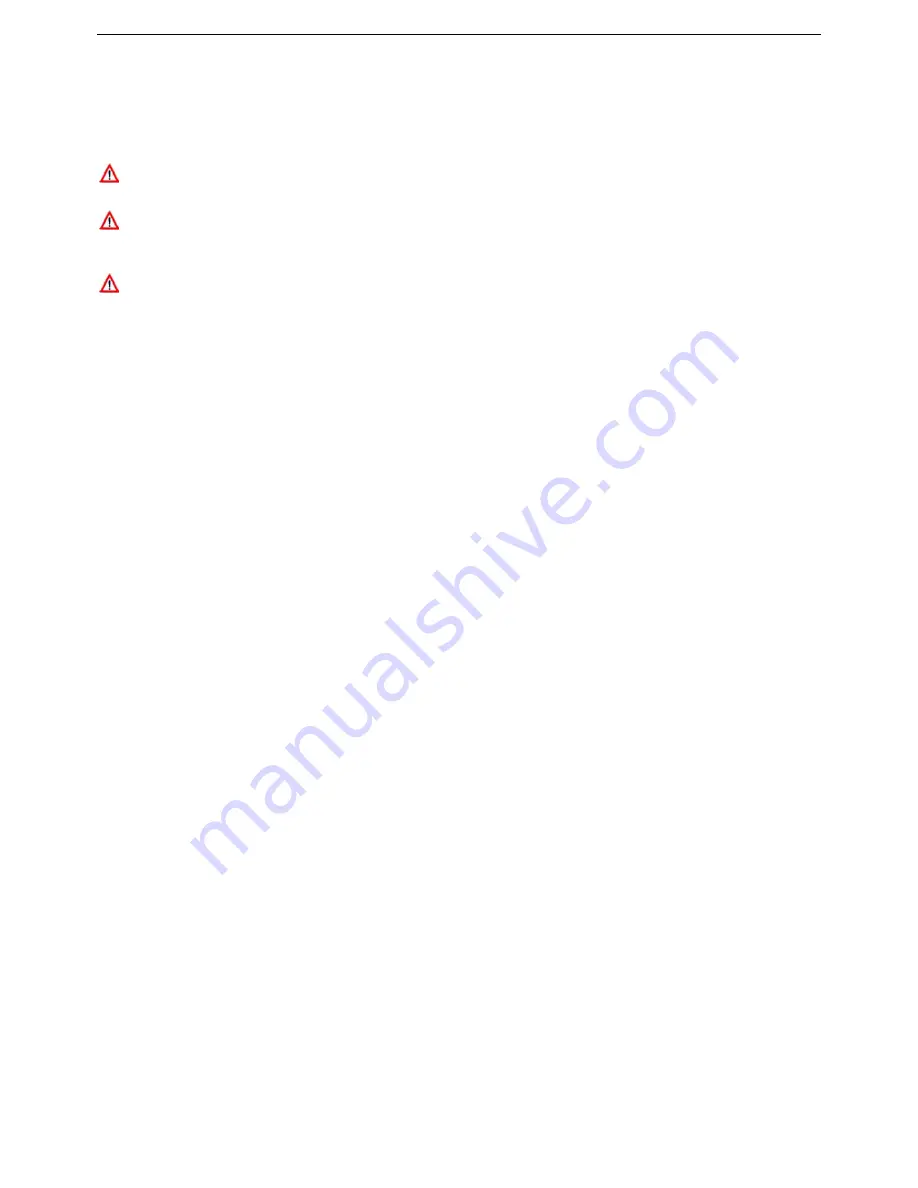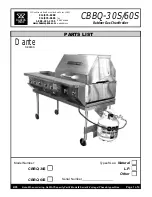
INSTALLATION INSTRUCTIONS
CONDENSING BOILOES WITH STORAGE - TG05A095.A0306
30
4. INITIAL START-UP
4.1 General warnings
The following operations must be carried out by professionally qualified personnel, registered in
accordance with current legislation and authorised by Radiant Bruciatori S.p.A.
The boiler leaves the factory pre-set and tested for burning either Natural Gas or LPG. Nevertheless,
when starting the boiler for the first time, make sure that the information on the rating plate
corresponds to the type of gas being supplied to the boiler.
Once the system has been filled and the necessary adjustments made, remember to tighten the
screws of the gas valve test point and make sure that there are no gas leaks from the test point and
from any pipe fittings upstream of the gas valve.
■
Preliminary operations
Lighting the boiler for the first time signifies checking that the installation, regulation and operation of the appliance
are correct:
•
If the gas supply system is newly installed, then the air present in the pipes can cause the boiler not to light at
the first attempt. A number of attempts may be required in order to light the boiler.
•
Check that the data on the rating plate corresponds to that of the mains supply networks (gas, electricity,
water).
•
Check that the power supply voltage to the boiler complies with the rating plate (230 V – 50 Hz) and that the
live, neutral and earth wires are connected properly. Also make sure that the earth connection is sound.
•
Check the seals on the gas supply pipe from the mains, and make sure that the meter does not register any
flow of gas.
•
Open the gas valve to the boiler and check that there are no leaks from the fittings upstream of the boiler (the
burner gas connection is checked with the boiler in operation).
•
Check that the gas supply is correctly sized for the flow rate required by the boiler and that it is fitted with all the
safety and control devices as lay down by current regulations.
•
Check that the supply of combustion air and exhaust and condensate discharge systems are functioning
correctly and in line with current law and national and local standards.
•
Check for the presence of permanent aeration/ventilation openings as required by current law for the type of
appliances installed.
•
Check that the flue duct and its connections to the terminal/chimney comply with the requirements of current
law and national and local standards for the type of appliances installed.
•
Make sure that any central heating shut-off valves are open.
•
Check that the condensate drain system, including outside the boiler (flue system condensate collection
devices), allows the condensate to flow freely to the collection devices. If the condensate is discharged to the
domestic drainage system, install an inspection trap in the condensate system prior to it entering the drainage
system to interrupt the continuity between the two systems.
•
Check that there are no exhaust fumes discharged into the system itself.
•
Check that there are no flammable materials or liquids in the immediate vicinity of the boiler.
•
Flush out both primary and domestic hot water circuits
.
Summary of Contents for RKA 25
Page 2: ......
















































